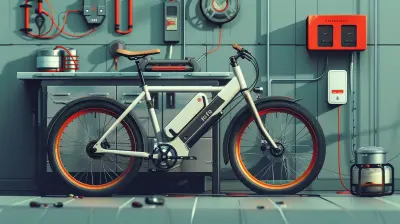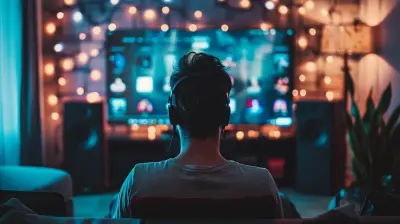The Role of Gadgets in Enhancing Mental Health
12 October 2025
Let’s face it—when someone says “gadgets,” most of us immediately picture distractions. Phones buzzing, constant notifications, endless social media scrolls. But what if I told you that the same devices we sometimes blame for stress could actually be tools for improving our mental health?
Yeah, that’s right. In this increasingly digital age, gadgets are no longer just about convenience and entertainment. They’re becoming powerful allies in our quest for mental well-being. From tracking our sleep to calming our minds with guided meditation, smart devices are stepping up in a big way.
So grab a cup of your favorite drink, and let’s dive deep into how gadgets are not only shaping our digital lives—but also helping us feel better, think clearer, and live healthier.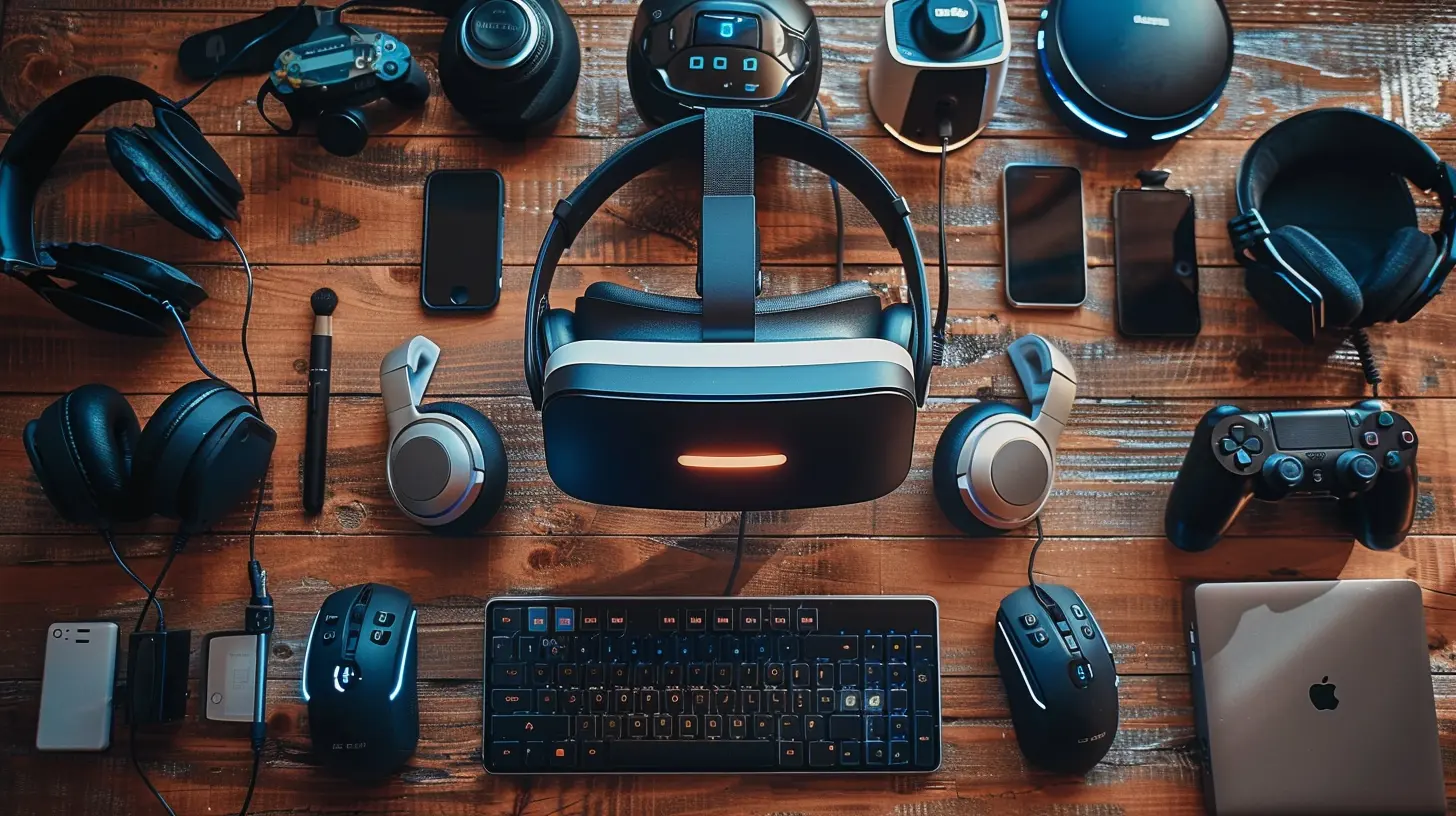
Gadgets: More Than Just Fancy Tech
Gadgets aren't just shiny toys anymore. They've evolved. And they’re evolving with us.If you think about it, we carry around mini supercomputers in our pockets every day. Smartphones, smartwatches, fitness trackers—they’re all loaded with features designed to help with our physical health. But mental health? That’s the new frontier.
These gadgets are being equipped with sophisticated sensors, AI-driven applications, and even personalized suggestions to support emotional wellness. And the best part? They’re right there when you need them most.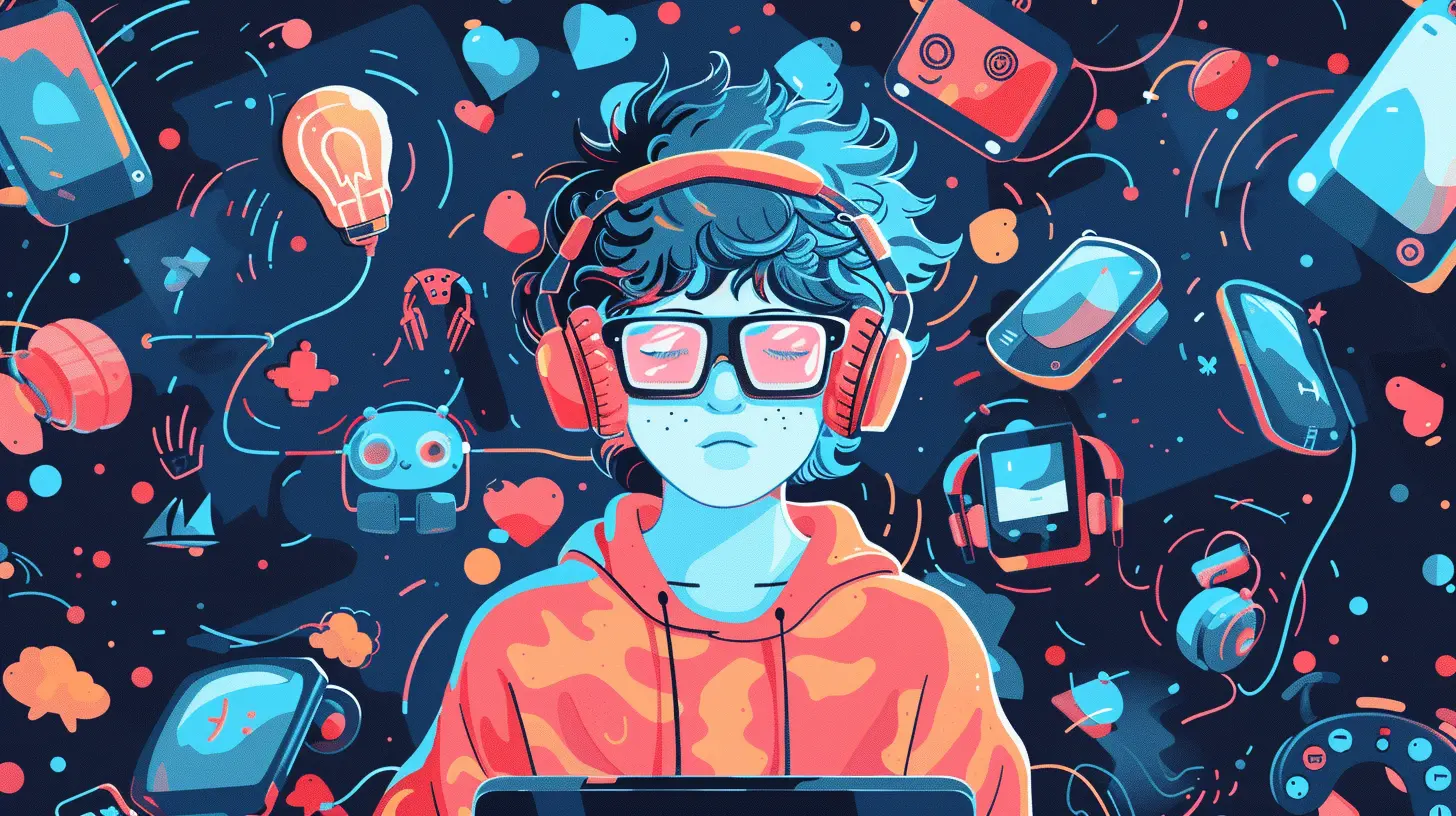
How Do Gadgets Help Your Mental Health?
Let’s break it down. Just like you go to the gym for physical stamina, your mind needs attention and care. That’s where tech steps in. Here are some awesome ways gadgets can positively influence mental health:1. Wearable Devices That Monitor Your Mood
Ever feel off, but can’t really explain why? Wearables might just help you put a finger on it.Devices like Fitbit, Apple Watch, and Whoop are more than just step counters. They track heart rate variability (HRV), sleep stages, stress levels, and even your breathing patterns. With all this data, you get insights into your emotional state.
And guess what? Some wearables even nudge you to breathe when your stress levels spike.
That gentle tap on your wrist? It might just be the reminder you need to pause and check in with yourself.
2. Apps That Soothe And Support
Mental health apps are blowing up right now—and for good reason. There are apps for meditation, mood tracking, therapy, journaling, and even digital CBT (Cognitive Behavioral Therapy).Here are a few favorites:
- Headspace & Calm: Perfect for meditation newbies and pros alike. These apps combine soothing voices, animations, and music to make mindfulness a habit.
- Moodpath: It asks you simple questions daily and tracks mental health trends over time. It’s like having a pocket therapist.
- Woebot: An AI chatbot that chats with you about your day and offers scientifically-backed mental health support.
No judgment. No appointments. Just support—on your terms.
3. Virtual Therapy is Real and It Works
You no longer have to sit on a couch in someone’s office to get help. Virtual therapy is more accessible, affordable, and comfortable than ever.Platforms like BetterHelp and Talkspace connect you to licensed therapists through text, video, and phone calls. You can even choose your communication style. Don’t want face-to-face? No problem.
This flexibility removes massive barriers like cost, travel, and time. And yes, it’s backed by research: virtual therapy is just as effective as traditional methods for many people.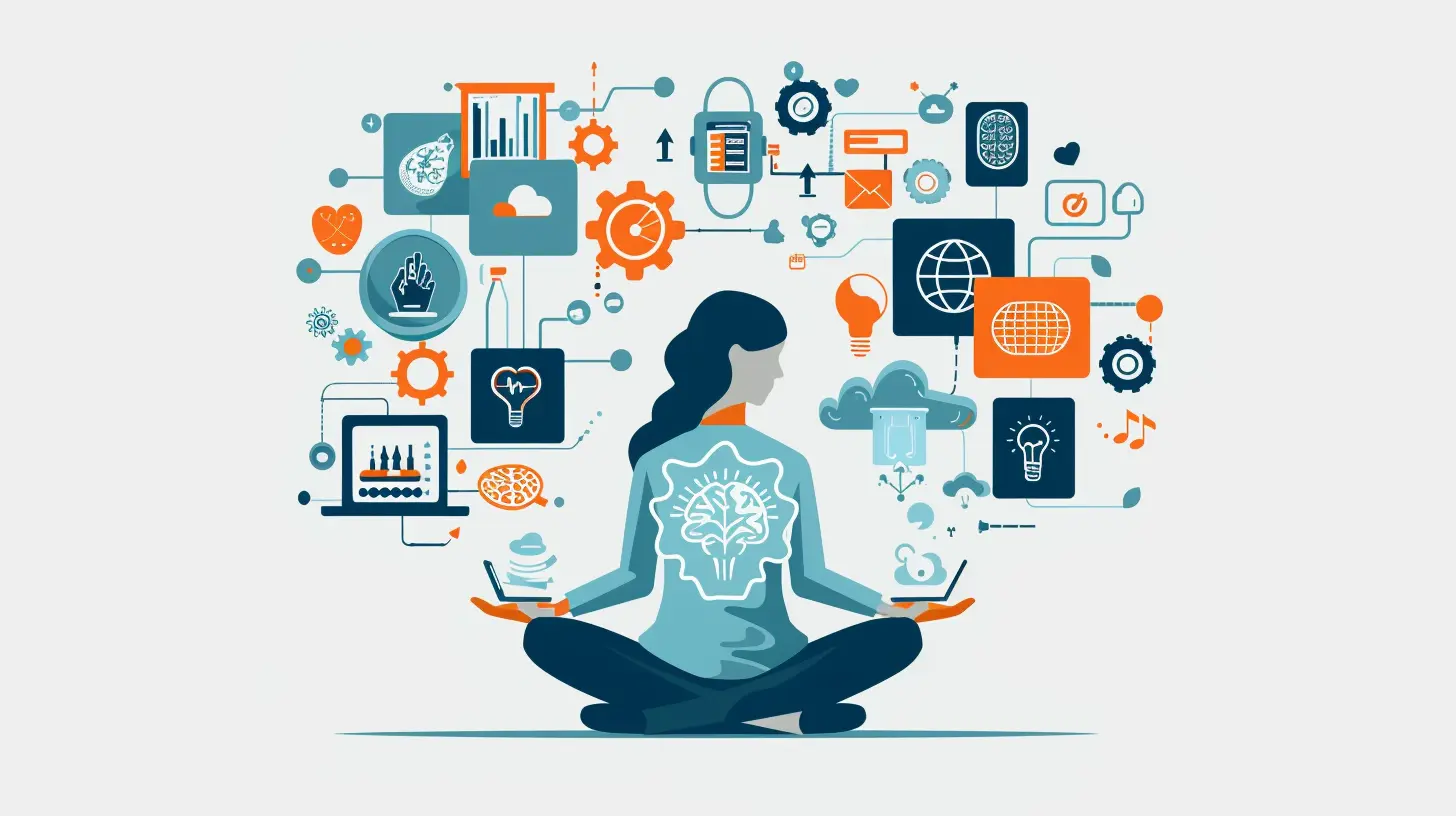
Using Gadgets to Improve Sleep (Yes, That’s Mental Health Too)
Raise your hand if you’ve ever stayed up too late scrolling… Yeah, we’ve all been there.But here’s the twist—gadgets can also help you sleep better.
From sleep tracking to white noise, tech is helping us catch those all-important Zzzs. And better sleep? That’s one of the biggest contributors to improved mental health.
Smart mattresses, sleep apps, and wearables offer sleep insights—tracking how long and how deeply you sleep. Devices like Oura Ring or Sleep Cycle can even wake you up at the optimal time in your sleep cycle. That means less grogginess and more mental clarity.
Not to mention, gadgets like Dodow project a calming light on your ceiling that syncs with your breathing. It’s like rocking your brain to sleep.
Gadgets for Mindfulness and Focus
You know those days when your brain is all over the place? There’s a gadget (actually, several) for that.1. Muse: The Brain-Sensing Headband
This little device reads your brainwaves and gives real-time feedback during meditation. If your mind wanders, it lets you know gently—no judgment, just guidance.2. Focus@Will
An app designed to play productivity-boosting music based on neuroscience. It keeps your brain in “the zone.”3. Pomodoro Timers
Act as digital focus coaches, breaking your tasks into manageable chunks. Apps like Forest even grow virtual trees the longer you stay off your phone. Cool, right?These tools train your brain to stay calm, focused, and grounded. Over time, that’s a massive win for your mental health.
Digital Journals & Gratitude Logs: Rewiring the Brain
Ever tried journaling but couldn’t stick to it? Same.Enter digital journaling apps like Day One, Reflectly, and Journey. These apps send reminders, offer prompts, and even sync across devices. Writing your thoughts down helps process emotions, improve self-awareness, and reduce anxiety.
And here’s a neat trick—try gratitude journaling. Studies show it rewires your brain to focus on the positives. A few lines a day can do wonders.
Biofeedback Gadgets: Your Body Talks. These Listen.
Biofeedback tools help you tune into your body to control stress and anxiety better.Devices like Inner Balance from HeartMath guide you to sync your breath with your heart rhythms. They give you live feedback, so you learn how to calm your nerves on command.
Think of it like having a coach whispering, “You’ve got this,” in your ear when things get chaotic.
Gaming for Mental Health? Yes, It’s a Thing.
Believe it or not, some video games are good for your mind.Puzzle games, narrative-driven adventures, and even VR experiences are being used to treat anxiety, PTSD, and depression.
Games engage the brain, provide a sense of control, and can even encourage social interaction. Some therapists use games like "Animal Crossing" or "Journey" as therapy tools. It’s like sneaking veggies into your dessert.
Of course, moderation is key—balance is the name of the game.
The Importance of Balance in Tech Usage
Now, let’s not pretend it’s all rainbows and unicorns. Technology can be a double-edged sword.Gadget use must be intentional. If you’re just bouncing from app to app, overwhelmed by choices, that’s not helpful.
Set boundaries. Use screen time tools. Know when to unplug.
Remember, gadgets should support your mental health, not overtake it. They’re tools—not crutches.
Are Gadgets the Future of Mental Health?
It sure looks that way. AI, data personalization, wearable sensors—this tech combo is paving the way for a more proactive, personalized approach to mental wellness.Imagine a future where your smartwatch can predict panic attacks before they happen. Or a virtual reality session that helps you face your fears in a controlled environment. Some of this is already happening!
As tech gets smarter, so does our ability to care for our minds. But it’s not about replacing human connection—it’s about enhancing it, supporting it, and making help available when and where you need it.
Final Thoughts
The idea that gadgets can improve mental health might have sounded crazy a few years ago. But today? It’s our reality.From smart rings to calming apps, wearable tech to journaling tools, the digital landscape is filled with allies in your mental wellness journey.
Don’t get me wrong—no device can replace therapy, connection, or deep self-work. But they sure can help. They’re the support system many of us never knew we needed.
So next time you check your smartwatch or pop on your wireless earbuds, just remember: That gadget in your hand could be the gateway to a calmer, more centered, more mentally resilient you.
Let’s use them that way.
all images in this post were generated using AI tools
Category:
Tech GadgetsAuthor:

Vincent Hubbard
Discussion
rate this article
1 comments
Linnea McMeekin
This article insightfully explores how gadgets can positively impact mental health by providing tools for mindfulness, social connection, and stress relief. Embracing technology mindfully can lead to improved well-being.
October 23, 2025 at 3:31 AM

Vincent Hubbard
Thank you for your thoughtful comment! I'm glad you found the article insightful in highlighting the positive impact of gadgets on mental health. Embracing technology mindfully can truly enhance well-being.
